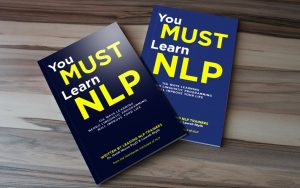When it comes to your moods, are you more proactive or reactive?
Makes you think, doesn’t it? Of course, I think we’ll like to believe that we are more proactive about the moods and emotions that we have, but in truth we are reactive. It’s just how we are programmed.
You see, everything that is your conscious and unconscious awareness has the ability to trigger your mood and emotions, and I mean everything – even the things that you are not consciously aware of. Perhaps especially the things that you are not consciously aware of.
The NLP Communication Model explains what happens in the mind that makes us reactive to what is going on around us. The Communication Model says that as we go about our daily life, our unconscious mind is automatically filtering through what we are bringing in through our five senses; what we see, hear, taste, touch, and smell – even what we think to ourselves. Our mind is filtering this information based on our beliefs, ideas, culture, bias, decisions, patterns, gestalts, and more. Once we filter it, the unconscious mind makes it fit into our schema of the world by distorting, deleting, and generalizing information. All of this happens in an instant.
Immediately, our unconscious mind creates some sort of internal representation of the moment by way of an internal movie, sound, or feeling – and we react chemical and neurologically to this by the production of chemicals and hormones which are directly secreted into our body, resulting in a state change. A state, simply put, is a mood or emotion.
So to answer the question asked earlier – when it comes to moods, you are more reactive. From there, we can be proactive, and NLP will help you to become more proactive by helping you to identify and change some of the filterings you automatically do which leads to your moods. For example, if you know that get sad or depressed on cloudy days – wouldn’t you rather alter the state that these types of days have on you? Or if you get angry when someone gives you feedback, wouldn’t you rather be receptive and open?
In order to create any change, with NLP or any other tool you must first be aware of what reactions you are having and then you can be proactive about creating an alternative reaction. When you learn NLP, you will become more aware of the moods and emotions that you exhibit in different situations. Most of the time, you’ll probably find that your auto-pilot is working just fine. In the instances where you see that an improvement could be made, this is where you will bring in your change tools and state management awareness.
One of the things we love about NLP is that it helps us to be more aware, proactive, and in charge of our mood, emotions, and outcomes in life.








